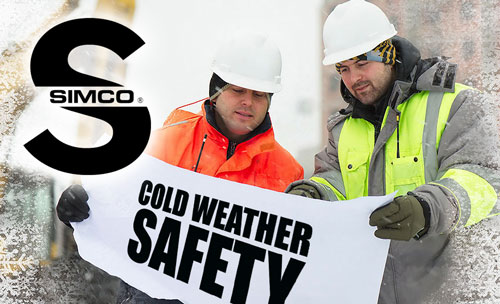As we slide into cold, winter months in the Midwest, we’re looking at preparations to take before the first snowfall and frigid temperatures. While winterizing your car, protecting the water pipes in your home, getting your furnace cleaned and serviced may be top of mind, it’s also the perfect time to start talking about cold weather safety while you’re on a drilling job – or any work site that requires working outside.

If you’ve grown up in an area that battles severe winter weather, you may feel like you’re tough enough to handle anything Mother Nature can throw at you. But when you’re on a water well drilling job, it’s essential to keep in mind that injuries from direct cold can happen in the blink of an eye. Some of the most common threats to be aware of include hypothermia, frostbite and immersion foot or trench foot. Each of these common injuries can have lasting effects. Frostbite and trench foot can sometimes lead to amputations and it’s not uncommon for hypothermia to result in death.
It is imperative that your entire drilling crew follows proper suggestions for personal protective equipment (PPE) during winter months. Since OSHA doesn’t have specific regulations for winter PPE and each job site is unique, here are some cold weather safety precautions to take that can ward off cold-related injuries.
- Employers should ensure their workers know the signs of cold-related conditions so they can take care of themselves and each other.
- Wearing 3 layers of loose clothing will provide the best insulation – tight clothing can restrict circulation to and from hands and feet.
- Each employee should have a dry change of clothes on hand in case their garments get wet, even from sweat.
- Insulated and waterproof boots and gloves can keep appendages free from damaging cold injuries especially on cold water well drilling or geotechnical drilling sites
- Wearing an insulated hat that extends over the ears will not only reduce the amount of heat lost through the top of the head but will protect the sensitive skin on the ears. REMEMBER: Skull caps and winter liners are acceptable only if they don’t interfere with the fit of the hard hat.
- A windproof ski mask – also called a balaclava – protects the cheeks, chin and nose from cold air and frigid winds.
No matter your level of experience with winter weather or completing drilling jobs in harsh conditions, no one is immune to the dangers of cold weather working condisions. It only takes a few minutes to cause irreparable damage so be sure to protect yourself as the temperatures take a dive in the coming months.



